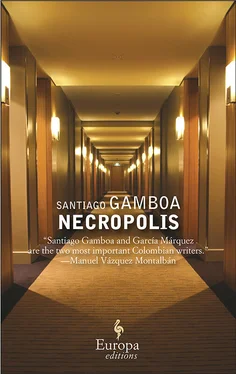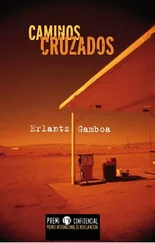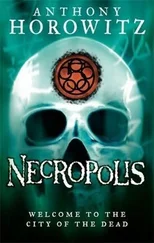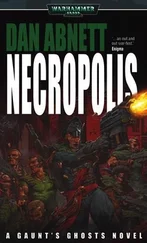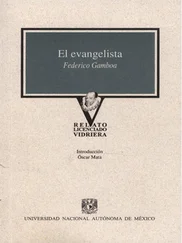As for reading matter, now that is another story. To tell the truth, that caused a lot of last-minute problems when I was already ready to go out, with the taxi at the front door and the elevator waiting at my floor. As if, instead of a conference, I was going to a desert island for the rest of my life. Novels by Wiener and Walser, to start with. Three masterpieces of the novella — Truman Capote’s Breakfast at Tiffany’s, Twenty-Four Hours in a Woman’s Life by Stefan Zweig, and Hotel Savoy by Joseph Roth — and a good book of short stories to read on the plane, The Street of Crocodiles , by Bruno Schulz, a book with Jewish themes, which I have been reading very slowly for years in a 1972 edition by Barral Editores, and the wonderful Closely Observed Trains by Hrabal, and something by Philip K. Dick, perhaps The Man in the High Castle , and another SF book, a rare pearl, We , by Yevgeny Zamiatin, and The Elephanta Suite , the latest by Paul Theroux, the best storyteller of his kind in the United States, and the latest by Thomas Pynchon, the best storyteller of his kind in the United States, there are many “best storytellers,” and of course, A Tale of Love and Darkness , the memoirs of Amos Oz, the best contemporary Israeli storyteller, and the work of St John of the Cross, the father of all poets, and Lost Illusions by Balzac, the father of all novelists, and something light, my God, a travel book, yes, that little book by Pierre Loti on the Middle East, where is it? and again the entry phone rang, and the Fascist caretaker cried, signore, if you don’t come down now the taxi will leave, hurry up, do you want me to come up for the bags? and I said, no! wait a minute, just a minute, I would never have agreed to that horrendous caretaker coming into my apartment, I know he would like nothing better than to spy on me, to sit down and ask me where I am going and for how long and then tell everybody, exercising his panoptic control over the lives of his tenants, so I took a last glance at my library and still found room in my baggage for a book of interviews with famous writers first published in The Paris Review , and at last I left, double-locking the door, and ran down to the street, regretting that I had not taken anything by Stifter, which would have been ideal for a journey, although I consoled myself with the thought that you never get time to read at conferences anyway. Apart from the heaps of novels you are given by colleagues, you never get to the hotel early enough or sober enough to read.
Fortunately, my flight left at midnight, which had given me the whole day to solve all these problems. I hate planes that leave at dawn, when you have to set the alarm for four in the morning and leave your bags packed the day before, next to the door, with all the dangers that lie in wait for the man who has slept badly and is not used to going to bed before midnight; in cases like that, it is better to cancel the whole thing, and remember the motto of that castle on the banks of the Danube that Magris talks about, “It is better for the happy to stay at home,” and even if you are not happy, or not completely happy, what does happiness matter anyway, it is always better to stay at home.
When I got to the airport, instead of checking in my case and going to the bar for a gin, I found myself trapped in an uncomfortably long line of travelers. The security checks were endless, there were dozens of questions to be answered and I had to subject my baggage to sophisticated detection with liquids and damp cotton. The atmosphere was distinctly hostile, and the nervous-looking soldiers with their submachine guns clearly took the whole thing very seriously.
What can I say about the flight?
Of course, the seat next to me was not filled by any of the pretty young girls of Slav origin or the Italian Jewish women I had seen in the waiting room, oh, no, they all walked past. The person who did sit down beside me was a fat rabbi who had been visiting his family in Italy, or so he said when he saw me looking at him with a certain interest, which I did, of course, not because I was anxious to talk but because I was startled by the foul smell given off by his coat.
Everything was fine until the meal arrived and the rabbi saw normal, that is, non-kosher, food on my plate. Excuse me, he said, aren’t you Jewish? I did not know if I had to answer that, but I did anyway, as there were still three hours of the flight left. No, I said. I’m not.
The rabbi insisted: are you Christian, Muslim, Methodist…? I’m an agnostic, I said, but the rabbi ignored my words. You shouldn’t eat that, he said, come, I’ll give you my tray, leave that garbage alone. He pushed his plate toward my fold-down table, but I stopped him. You’re very kind, but I can’t accept, I’m an agnostic, this food is fine for me. The man looked at me through his side locks and said, it’s been proved that food like that is garbage, take my word, you should think about it.
His attitude was starting to get on my nerves. I’ve been eating it since I was a child, I said, and here I am, alive and kicking, or don’t you think I’m alive? The rabbi turned and looked me in the eyes. Now that you mention it, you are a little pale, have you looked in a mirror lately? it’s obvious you’ve lost weight, you have bags under your eyes and chin, and your clothes are too big on you. It’s also obvious that you’ve been sleeping badly, and that’s definitely down to food, believe me, so please accept mine.
I refused again. The rabbi gave a groan and said: if you reject our customs, why are you coming to our country? I was about to ask you the same thing, I said, why do you travel to other countries if you don’t accept their customs? There are Jews all over the world, he said. Good for you, I said, and good for me too, there are non-Jewish people in Israel. Don’t remind me. . he said.
If I had had bubonic plague or Ebola, the rabbi would have felt more comfortable beside me. He expressed his displeasure by turning in his seat, which given his size was quite a feat, and every now and again casting withering glances at my plate, as if instead of meat and vegetables it contained the raw, bleeding organs of a pig. I was getting desperate. How much longer before we arrive? I asked a flight attendant who was passing along the aisle, but the answer was the same as always, two and a half hours, sir, we recommend you try and sleep, the DVD system in your seat is out of order but you have your headphones and there’s a varied program of great music to help you relax.
Just before we landed, the rabbi expressed his joy with a little dance that probably endangered the safety of the plane. Then the light of dawn appeared, and the sheen of Tel Aviv, the white Mediterranean city founded by immigrants at the beginning of the past century.
In immigration, I was subjected to more questions. They seemed to be applying, very strictly, an interrogatory method that may perhaps have occasionally given good results, designed as it seemed to be for tired, confused people who have been traveling all night.
Do you know any Arabs?
Do you speak Arabic?
Have you had sexual relations with Arab men or women in the past twelve months?
What kind of novels do you write?
What, in your opinion, is the greatest human tragedy of modern times?
Have you ever tried kibbeh, tabouleh, or hummus?
In what circumstances have you tried kibbeh, tabouleh, or hummus?
Have you had sexual relations with Arab men or women at any time in your life?
Have you ever tried to learn Arab cooking?
What is your opinion of the philosophy of Nietzsche?
How many Steven Spielberg films have you seen?
Do you like the music of Wagner?
Читать дальше
